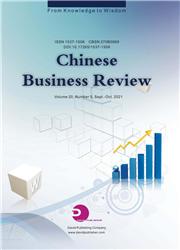Impact of the Food Subsidy on the Academic Performance of Low-Income Primary Education Students in Mexico
引用次数: 0
Abstract
The Program Cocinas Comunitarias in the state of Oaxaca, Mexico benefits children aged 6 to 12 who attend primary education schools in low-income municipalities. It is hoped that this food assistance program will allow children to learn better and develop learning skills. In this way, a significant reduction in the grade failure rates and dropout rates is expected, which will be reflected in a higher graduation efficiency rates. In fact, the contribution of this work consists of a methodology for the analysis of the impact of the food subsidy on the academic performance of low-income primary education students. In this sense, a multivariate model was constructed to analyze the interrelationships between grade failure, dropout, graduation efficiency rates, food subsidy, and the socio-demographic characteristics of the population that attends primary education. The Mexican government expects from this program that the more low-income children complete primary education, the more likely that a higher number of adolescents will complete high school education. This scheme is very important for the country’s half population living in poverty and especially in Oaxaca State which is one of poorest states.食品补贴对墨西哥低收入小学生学业成绩的影响
本文章由计算机程序翻译,如有差异,请以英文原文为准。
求助全文
约1分钟内获得全文
求助全文

 求助内容:
求助内容: 应助结果提醒方式:
应助结果提醒方式:


